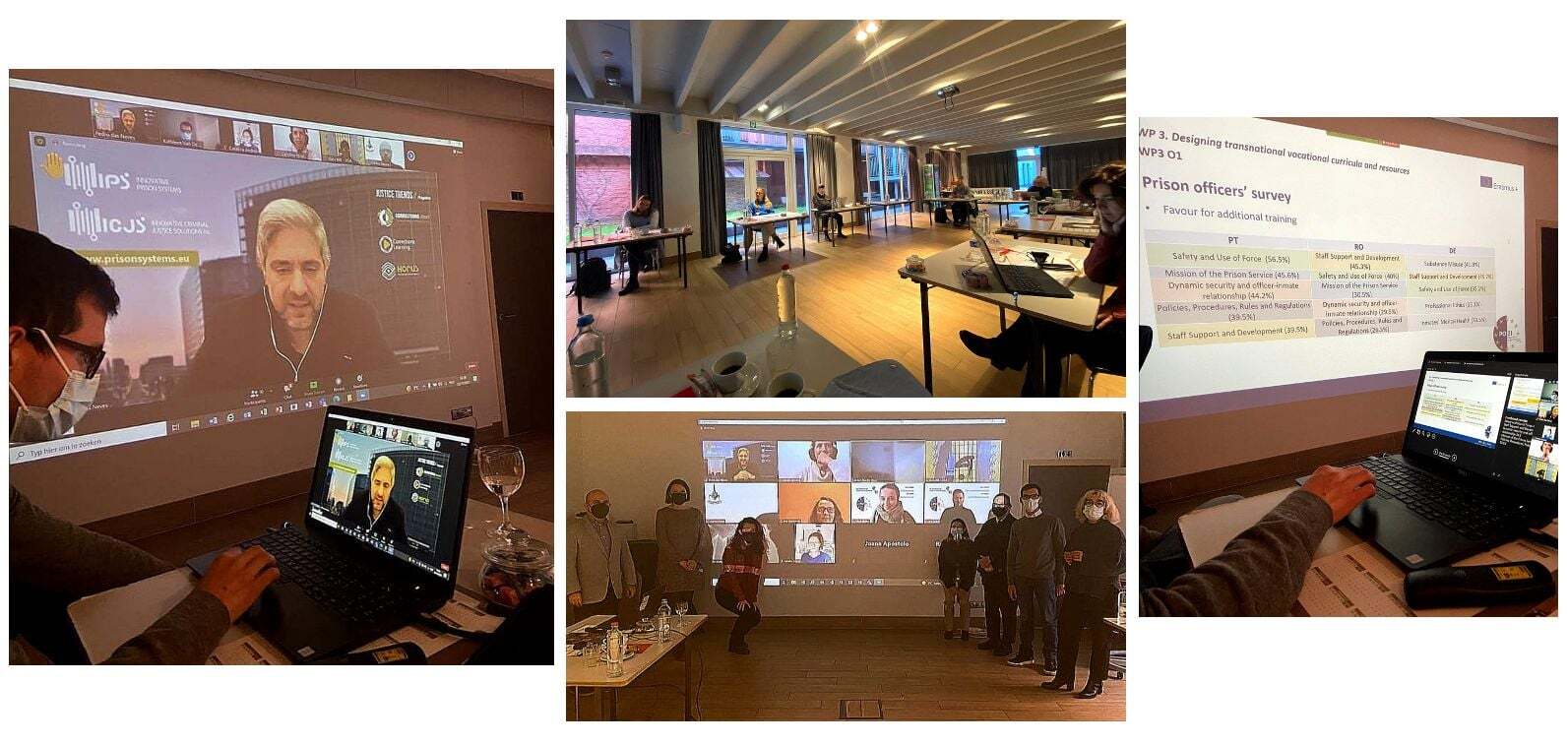Developing a clearer picture of the
European Prison Officer
PO21's consortium identifies existing and emerging skills needs, with the goal of educating and training
prison officers for the 21st-century sectoral challenges
|
The profiles and needs of prison officers are varied and differ from country to country. The project partner’s research and the insight drawn from DACUM Workshops revealed more information about these professionals. Moreover, the EU Prison Officers’ Survey, carried out by the partnership, has also achieved results stressing these general insights. The project developments so far outline a general picture of each country’s prison officers current profile, including their initial and continuous training, their future profile, that comprises proposed future training and specialisation relevant to their work, as well as their main challenges and pressing training needs. Three countries, a multitude of profiles and needs Portugal:
Romania:
Germany:
We can find common trends in these results, such as the new technological challenges and prisoner health and ageing themes. On the other hand, we can see which training topics require more attention, such as radicalisation prevention, as results from the DACUM workshop in Germany show. What is the significance of this data for PO21? PO21 - European Prison Officers for the 21st Century seeks to level the training across member states to facilitate the development and mobility of professionals and the implementation of Framework Decisions on the application of the principle of mutual recognition to judgments in criminal matters. That’s why these findings are key to designing training and knowledge sharing strategies to fill the gaps and divergences across Europe. Such detailed information on member state countries will shape the continued project intervention. Project partners were able to discuss these preliminary conclusions in a meeting in Ghent and online on the 22nd of November 2021. Furthermore, this was the moment to review the project status of implementation, progress, and next steps. PO21’s meeting was held in an hybrid of presential and online formats. These included the discussion of the transnational vocational curricula and resources, which will seek to put into practice the project’s Recommendations Paper for re-thinking prisons officers’ training, innovative VET curricula and programmes and the development of learning resources. Still on this day, partners discussed the implementation of a transnational, multi-site training course piloting and finetuning; the dissemination and mainstreaming of the project, and its active monitoring and evaluation. On the 23rd of November, partners continued to discuss the project tasks, namely the organisation of four short-term staff training events to be held in Lisbon, Brussels, Germany and Bucharest. |
|
These included the discussion of the transnational vocational curricula and resources, which will seek to put into practice the project’s Recommendations Paper for re-thinking prisons officers’ training, innovative VET curricula and programmes and the development of learning resources.
Still on this day, partners discussed the implementation of a transnational, multi-site training course piloting and finetuning; the dissemination and mainstreaming of the project, and its active monitoring and evaluation. On the 23rd of November, partners continued to discuss the project tasks, namely the organisation of four short-term staff training events to be held in Lisbon, Brussels, Germany and Bucharest. |
PO21 Kick-off Meeting
|
During the 13th and 14th February, IPS hosted the Kick-off Meeting of PO21 project (European Prison Officers for the 21st Century). After a virtual Kick-off Meeting in November 2019, the Consortium met face-to-face aiming to review partner’s tasks during the project’s lifespan, while exploring in depth the necessary actions to achieve the project’s main goals. Project objectives include the prospective development of a professional role by fomenting sustainable cooperative relationships between relevant sectorial stakeholders; the identification of existing and emerging skill needs for prison officers to develop an innovative training curriculum; the support skills recognition mechanisms and its deployment throughout the sector on an EU-level. Sectoral representatives (prison administrations, trade unions, VET and research organisations, and representatives of correctional private and public sector members from different European jurisdictions) discussed the development of sectorial skills, aiming at supporting EU prison officers in terms of skills harmonisation, actualisation and modernisation, bearing in mind the new and complex challenges faced by correctional services. The aforementioned issues were thus discussed by the partners: BSAFE LAB – Law Enforcement, Justice and Public Safety Research and Technology Transfer Lab, Beira Interior University (PT), leading the consortium; Bremen Senate of Justice and Constitution (DE), responsible for the organisation of a corrections skills advisory platform; IPS_Innovative Prison Systems (PT), charged with the development of the training curricula, its piloting and finetuning; International Corrections and Prisons Associations (ICPA, NL) and the European Organisation of Prison and Correctional Services (EuroPris, NL), which will work towards the establishment of a repository of learning materials and their production; whereas national trade unions, National Trade Union of Prison Policemen (SNPP, RO) and Sindicato Nacional do Corpo da Guarda Prisional (SNCGP, PT) and prison services, Belgian Public Service of Justice (BE) and the Direção Geral da Reinserção e Serviços Prisionais (DGRSP, PT), will contribute deeply to the project’s development through their practical know how and wholesome experience in the area, besides actively contributing during piloting activities. |



